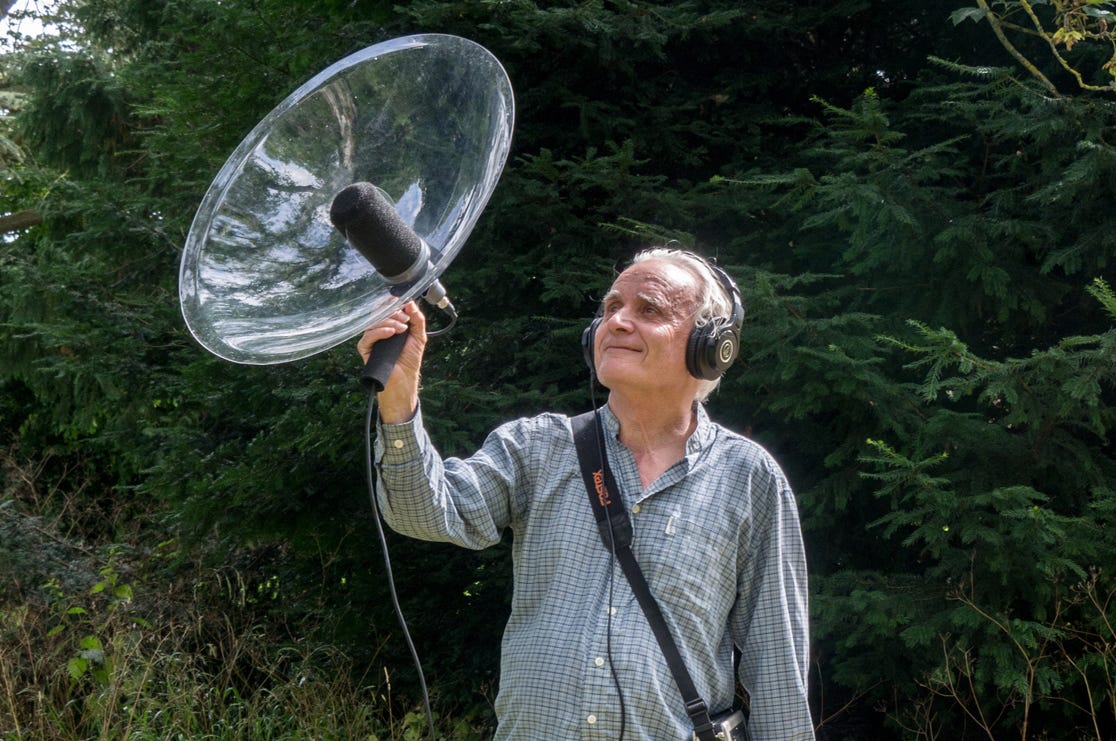'I want people to understand the fragility of nature and the role we all have in protecting it'
Writer and musician Nick Penny explains why the natural soundscape of Northamptonshire inspires him
By Julia Thorley
Nick Penny is a writer, musician, instrument maker and lover of the natural world. In his book Call of the Kingfisher, he delights in what can be seen and heard when we approach nature with patience and curiosity. He lives in Oundle.
Call of the Kingfisher is a beautiful book. What prompted the idea?
“I’ve walked the stretch of the Nene near my home for 30 years or more and have always been captivated by the sights and sounds I encounter, whether I’m on a short stroll or a longer, more leisurely expedition. Kingfishers are a particular favourite and it was my fascination with these beautiful birds that inspired me to start a daily blog for a year to record my encounters not just with them, but also the other sights and sounds of the natural world. The blog grew and it dawned on me that I was gathering enough material for a book.
“What is important is that I haven’t written this book for birdwatchers, though I hope they will read it, of course. It is more about fostering the deep connection between people and the natural environment. I want them to put their boots on and go for a walk, then to stop and listen. I often hear the bird before I see it, then I sit and wait. There’s nothing to beat the feeling when your patience is rewarded by that glorious flash of light and colour as you watch a kingfisher dive into the river. I also want people to understand the fragility of nature and the role we all have in protecting it.”
You say you write with a musician’s ear and bonus audio material is included with this book. How important to you was that element?
“To be honest, I wasn’t immediately keen on the idea when my publisher suggested it, which is odd given that as a musician sound is where it all begins for me. I was worried that online links might lead readers away from the page, but now I’m very pleased that we included it. I think it’s a valuable addition, and it might be as close as some people come to hearing some of the birds I’ve included.
“At intervals throughout the text there is a speaker symbol that prompts readers to activate the QR code at the front of the book that links to a website where sound clips can be accessed to enhance the story. It’s good to do this as you go along, but I also know some readers go through the book first, then come back to the clips on the second reading. The title relates to the literal call of the bird and also to the way it has drawn me in, so I hope people enjoy these recordings. I can’t think of any other book that has used them in this way.”
You make musical instruments, as well as play them. How did that come about?
“I’ve had a lifelong passion for music. I started by learning to play the guitar, then moved on to other related instruments, such as lutes, then harps. I was lucky enough to visit South America to find out how Paraguayan harps are made and to explore South American music.
“I gained a lot from the experience, but came to realise that I was missing the connection with my own landscape, so on my return home I made instruments that enabled me to find that connection again. For example, I worked on a musical improvisation on the sound of the nightingale recorded in local woods.
“My interests have always been slightly off the mainstream track. I spent a long time making and playing ‘junk’ instruments, for instance. This has always gone down well with groups of young people. I’ve done music workshops in over 2,000 schools over the years and never cease to be amazed at children’s enthusiasm and the freshness of their questions. One of the most joyous things I’ve been involved with was the Utterly Butterly Ukulele Project, where we made playable musical instruments from an empty spread box, a length of wood and some fishing line, with eyelets for tuning pegs. Great fun!”
What’s next for you?
“Ah, the ‘difficult second album’ question. At the moment, I’m working on an audio version of Call of the Kingfisher, which is quite a challenge but will I hope take the book to a wider audience. I’m doing lots of presentations where I combine music and chat to encourage people to get out into the countryside near them to explore with new eyes and ears what is on their doorstep. I want people to look again at the familiar. My next in-depth writing project will probably be something around the nightingale. There are one or two embryonic plans in place for me to work with TV and film people, which is exciting, and of course I’m constantly involved in music-making. Beyond that, I’m happy simply to see what comes along – I love surprises.”
Call of the Kingfisher is published by Bradt Guides and can be purchased at nickpenny.com
Julia Thorley is a Kettering-based writer.


I heartily recommend Call if the Kingfisher. It’s delightful and the sound recordings are excellent. I encourage readers to explore his music and bird recordings further. Nick has added nature writing to his many skills, which also include photography. His Paraguayan harp playing entertained our wedding guests 29 years ago and friends at our silver wedding anniversary; he also toured Northants village halls playing for a dance piece ‘Rare Birds’ commissioned by NCC for the Year of Dance in the East Midlands (1993) and I still have my Utterly Butterly Ukulele from one of his workshops in South Northants 😁🎶